There are a million document editing apps on the web. There are so many potential features that they can find customers depending on the perfect set of those features. Markdown supported? Markdown focused, or can you do more elaborate formatting? Collaborative? Realtime collaborative? Does it track history? What formats can it export it? Integrations?
There is one feature that I’m particularly interested in today: commenting. When a document is a draft of an article bound for publication, it typically needs to go through an editing process. (See: Guest Posting on Boost). That means someone else is reading it and providing feedback:
- Feedback on the whole document
- Feedback on particular sections
- Feedback on granular bits like individual words or sentences.
Some document editing apps just don’t have commenting at all. Let’s have a quick look around specifically at ones that do.
Google Docs
Everybody knows about Google Docs. I don’t feel like we need to dwell on this. It’s a pretty nice editor, to be sure, including quite fancy features like edits that can be accepted or rejected by the author which I gotta give props for. Alas, I usually don’t care for it as I like my documents largely unformatted ideally and the formatting of Google Docs tends to get in the way for me (technically, you can author Markdown, but it doesn’t lock the document to Markdown).
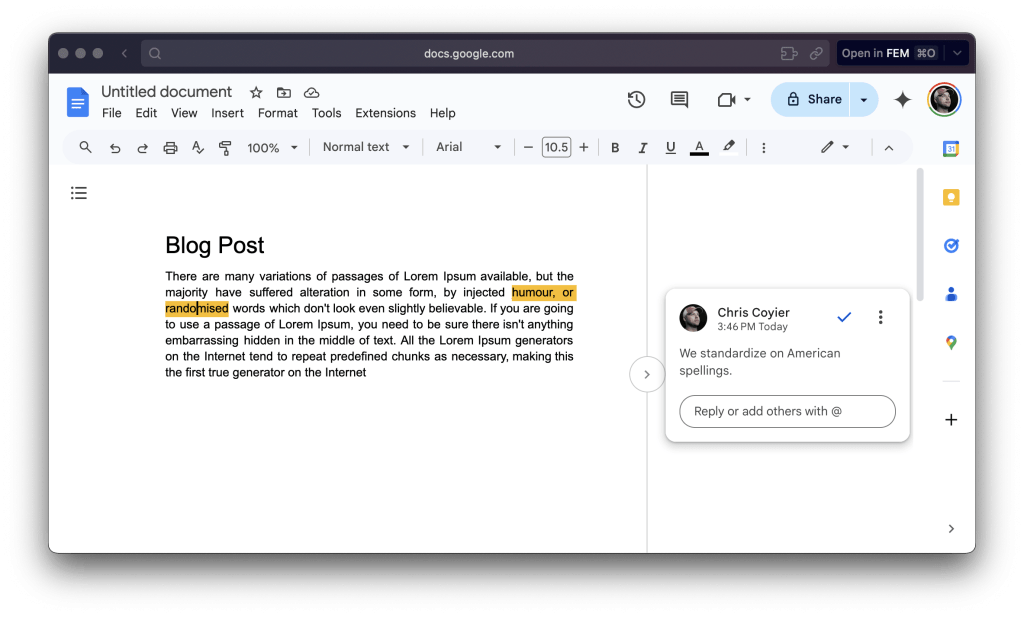
It certainly does have robust commenting though, and for that reason I’ll reluctantly say it’s a fine editor for articles bound for publication.
ButterDocs
Speaking of Google Docs, I’ve only recently just seen ButterDocs, which bills itself as a Google Docs alternatives for “serious writers and teams”.
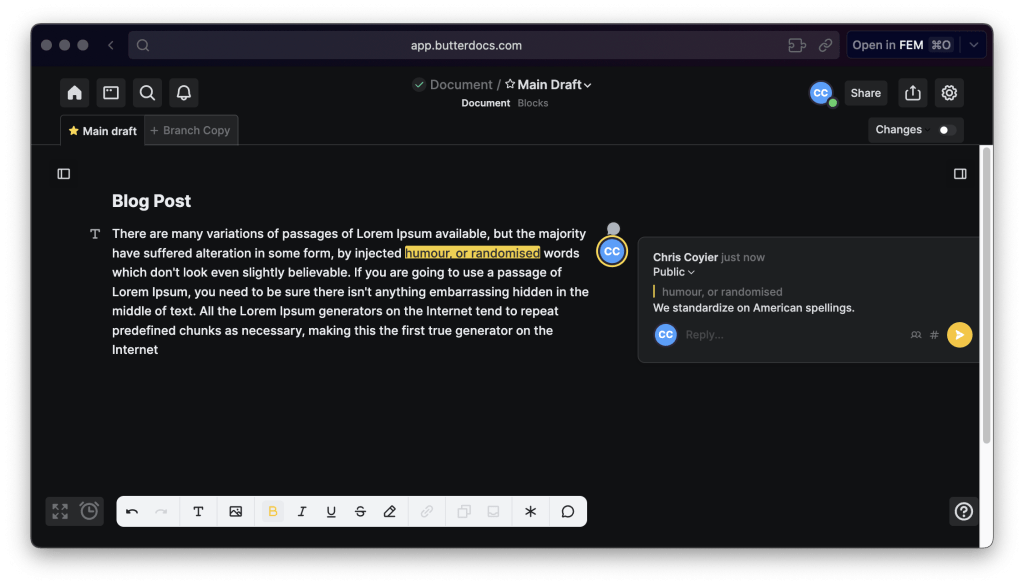
I’ve only just poked around a little, but I’m impressed. It honestly looks like an ideal writing app in a lot of ways. The commenting setup is quite robust, including that vital highlighted-text commenting, per-block commenting, and per-document commenting. There seems to be quite a few other clever features that seems immediately useful, like organizing a document into blocks, a “stash” to throw text you aren’t sure what to do with yet, and document branching (like git).
Notion
I sure wish it were faster, but I’m a pretty big fan of Notion. It’s great for all sorts of things like planning, notes, data organization, and documents. Notion kind of smooshes all those things together in a way that eludes description, but makes sense when you use it. Nested documents with metadata is my best attempt.
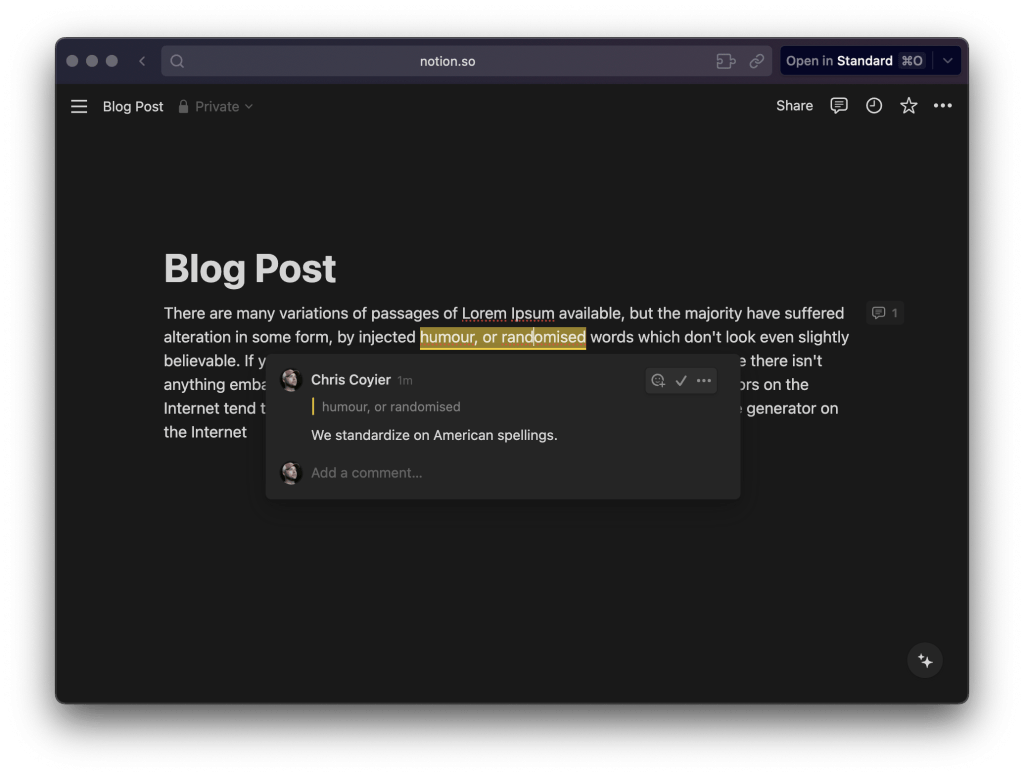
Notion has pretty good commenting built in. There is a clear commenting section at the top of the document for general comments, as well as comments on selections of text or any other type of “block”. Like Google Docs, there is a saved history as well (but no accept/reject suggestions).
My main issue with Notion as a general document sharing/editing tool is that it’s just such a robust tool it feels like you’re either a Notion user or you’re not. It doesn’t feel to me like a tool you’d just grab quick to collaborate on a document, then walk away. Although now that I write that, I can’t really explain why, you totally could.
StashPad
Cassidy — on her latest article (hey, guest posting is a thing) — used an app I’d never seen before for article drafting called StashPad and that’s what got me thinking about all this. StashPad ended up being pretty nice! It’s just really simple. Markdown focused, has commenting, done.
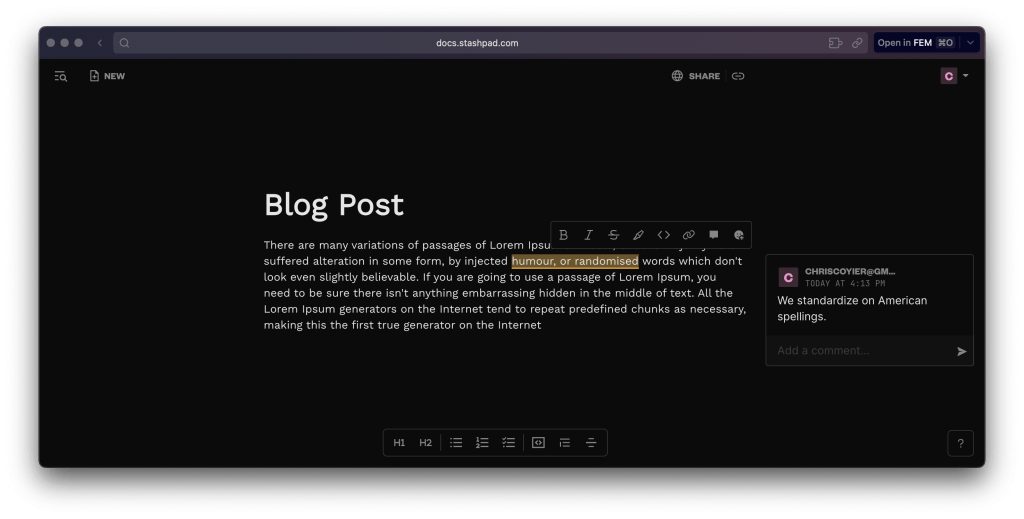
What’s extra notable about StashPad is that it has login-free collaboration, which is pretty wild! You can share a document URL with someone and they can just go in an edit with no account or anything. That friction-free experience is kinda sweet, if a little scary.
Dropbox Paper
For a long time, Dropbox Paper has been my go-to, at least for suggesting to others what is a nice tool to write in to share and get editing comments.
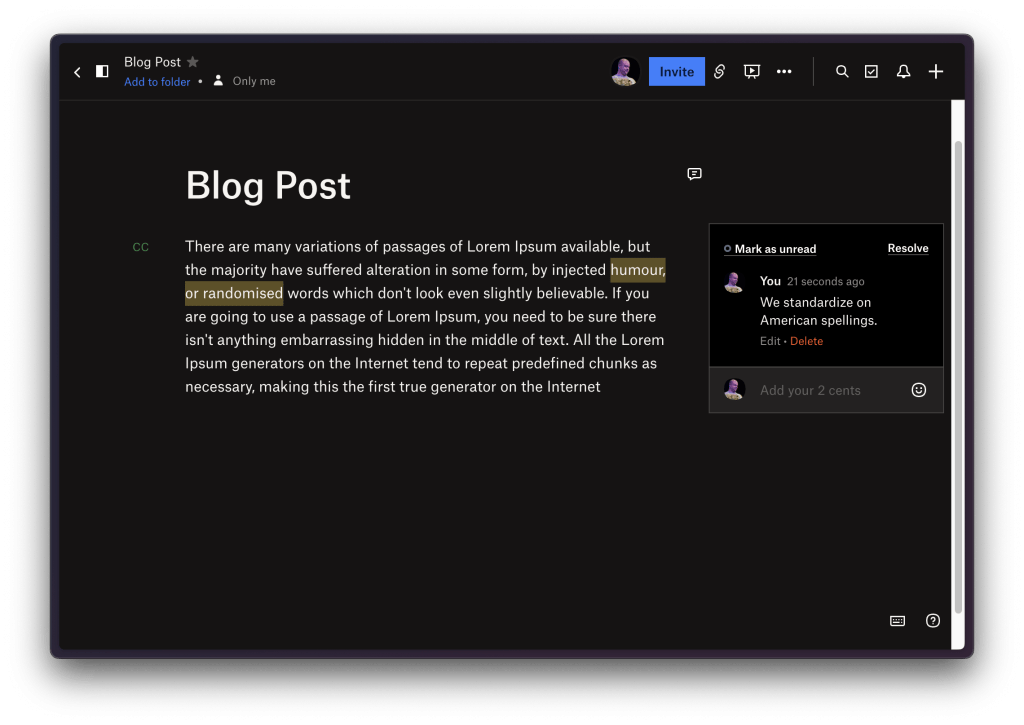
I still think it’s a pretty nice tool, but I’m increasingly starting to feel similarly to my comments about Notion. You’re either a Dropbox user or you’re not, and if you’re not, it feels a little weird to sign up just to use this documents tool, which is clearly a very little side project for them. Still, the permissions model, the invite system, and the exporting tools make it relatively perfect for me.
When I started this draft, my mind was reeling because I just know there is another one that should be on this list that I was watching with keen interest for a while. And now I absolutely cannot remember what is was and searching my own digital trails hasn’t found it. If you know of others in this category (must have nice commenting!) let me know.
It’s hard not to think of Editorially too, which closed doors a decade ago. That was poised to be a nice take on all this, but the business for them just didn’t shake out.
So which one did I draft this article in? I just wrote it right in WordPress. I wouldn’t have done that if I knew this had to go through a real editing process. It probably should have, but sometimes little articles like this I just kick out since it’s a particularly mission critical bit of writing. It does make me wish that WordPress has this kind of functionality built right into it though, as I find the editor in WordPress pretty decent already. It makes me wish there was an app that used the block editor as the base so at least copy-pasting back into WordPress would be flawless. :drool:


Notable entry: https://hackmd.io/
Internally as a company we use Dropbox Paper for collaborative documents. It’s fantastic, but it’s difficult to invite outside contributors for the reasons you mentioned.
There’s also https://etherpad.org/ with the option of self-hosting and a plugin for comments. It doesn’t have the prettiest UI, though.